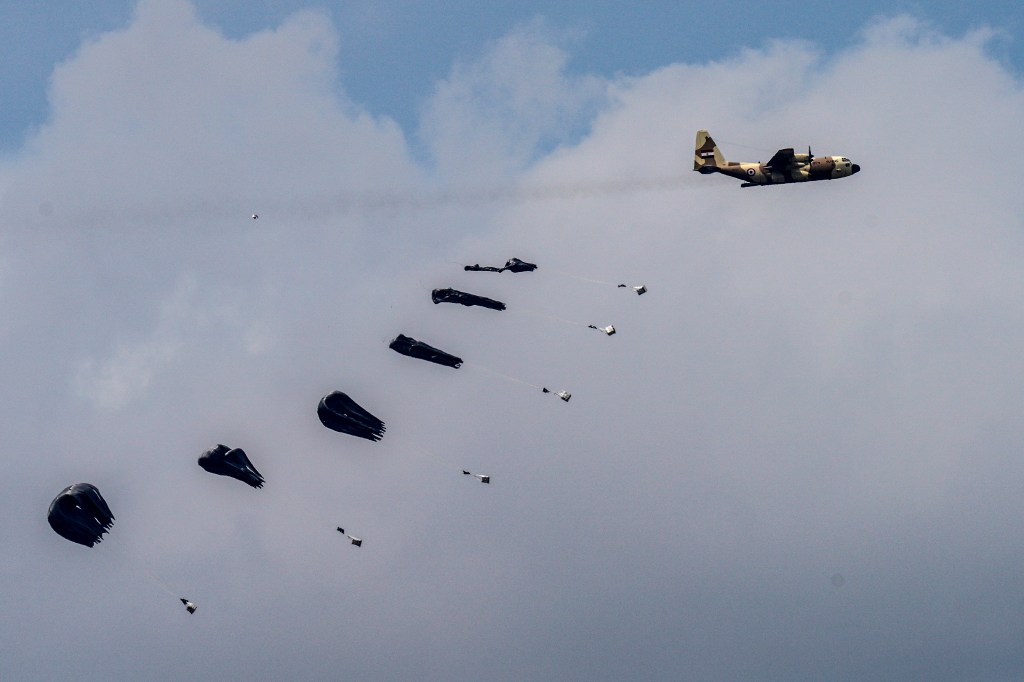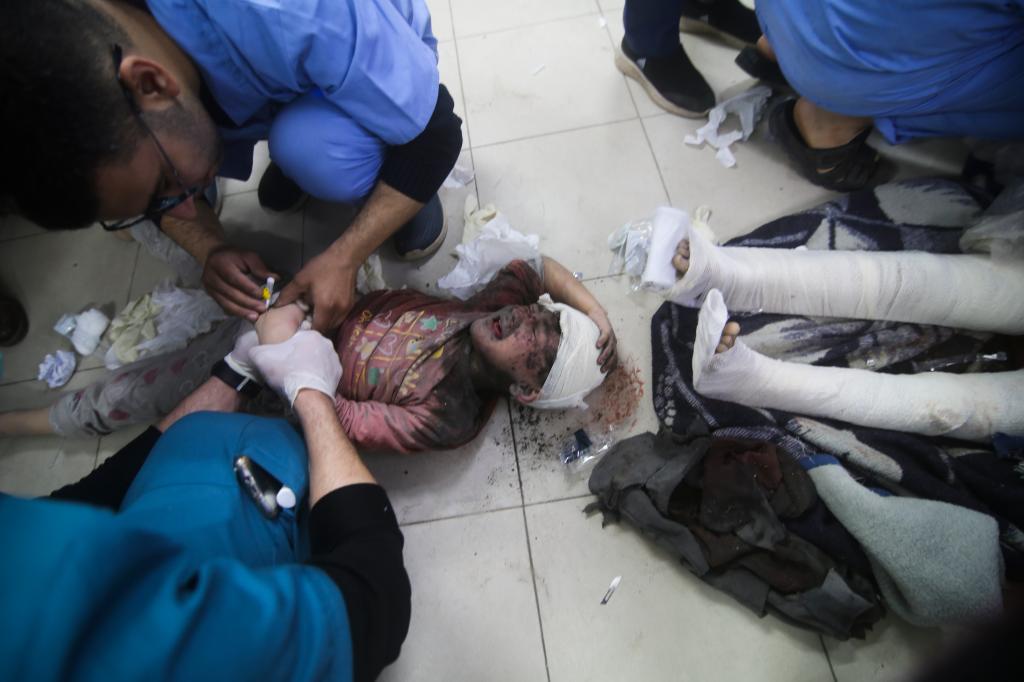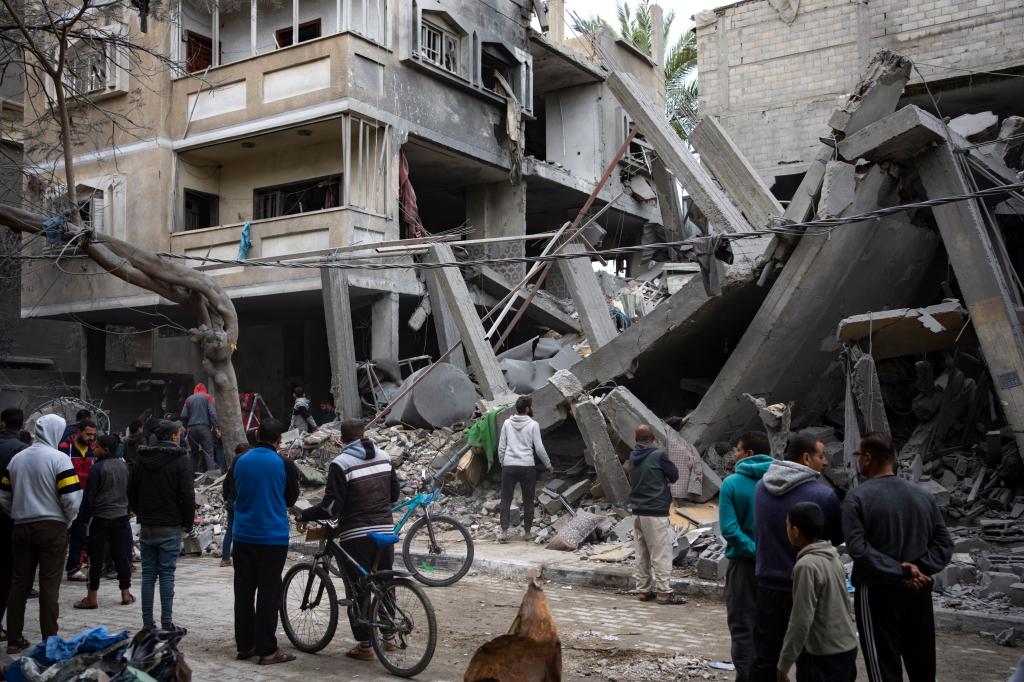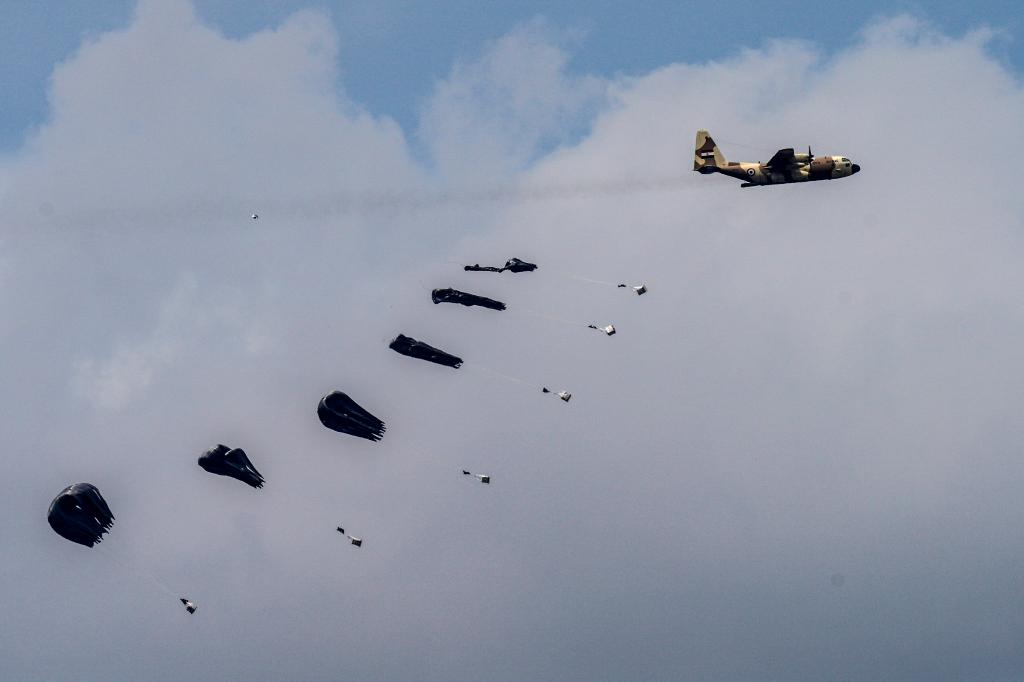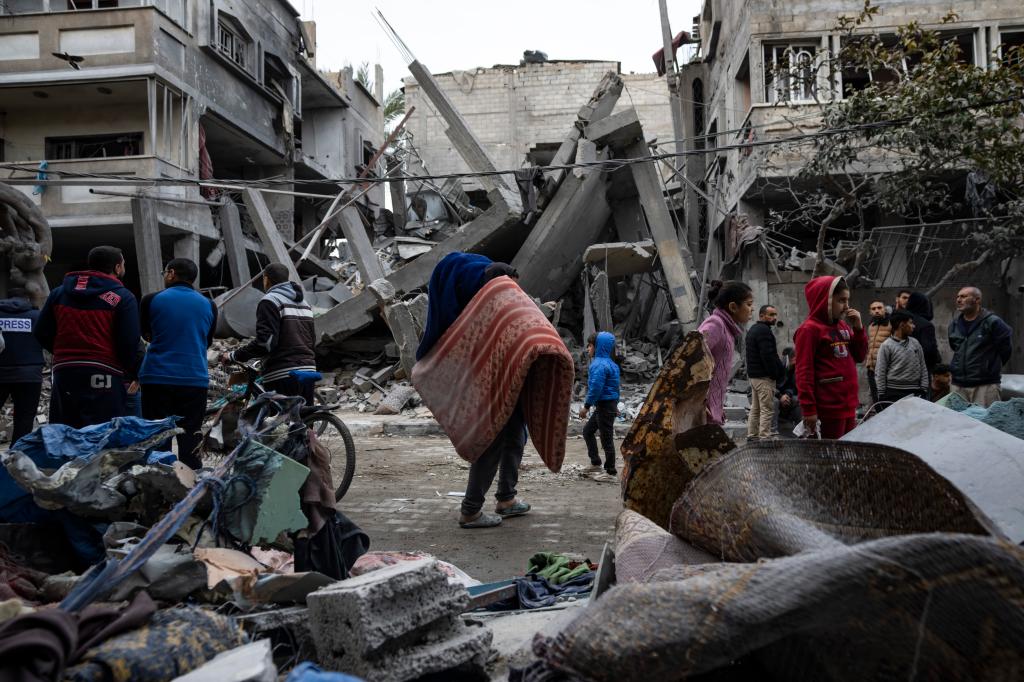Palestinians claim Israel ‘terrorizing’ Rafah after hospital raid leaves more than 170 dead
RAFAH, Gaza Strip — Palestinians who fled an ongoing Israeli raid of Gaza’s main hospital described mass arrests and forced marches past bodies in interviews on Sunday, while the United Nations said that Israel is now blocking its main agency helping Palestinians from sending food aid to the enclave’s devastated north.
Israel’s military says it has killed more than 170 militants and detained about 480 suspects in the raid on Shifa Hospital that began Monday, calling it a heavy blow to Hamas and other armed groups it says had regrouped there as the war nears the six-month mark.
The fighting highlights the resilience of Palestinian armed groups in a heavily destroyed part of Gaza where Israeli troops have been forced to return after a similar raid in the war’s earliest weeks.
Kareem Ayman Hathat, who lived in a five-story building about 100 meters from the hospital, said he huddled in the kitchen for days while explosions sometimes caused the building to shake.
Early Saturday, Israeli troops stormed the building and forced dozens of residents to leave. He said men were forced to strip to their underwear and four were detained. The rest were blindfolded and ordered to follow a tank south as blasts thundered around them.
“From time to time, the tank would fire a shell,” he told The Associated Press. “It was to terrorize us.”
Israeli jets on Sunday launched several strikes near the Shifa Hospital, which largely stopped functioning following the November raid. After claiming that Hamas maintained an elaborate command center there, Israeli forces months ago exposed a single tunnel leading to a few underground rooms.
Hardly any aid has been delivered in recent weeks to northern Gaza and Gaza City, where Shifa is located. The isolated area suffered widespread devastation in the early days of Israel’s offensive launched after the Oct. 7 Hamas attack that triggered the war.
Experts have said famine is imminent in northern Gaza, where more than 210,000 people suffer from catastrophic hunger.
A day after standing near some of the estimated 7,000 aid trucks waiting to enter Gaza and calling the starvation a “moral outrage,” U.N. Secretary-General António Guterres urged an immediate humanitarian cease-fire, the release of hostages held in Gaza and Israel’s removal of “obstacles and chokepoints” to allow a flood of aid delivery.
“Looking at Gaza, it almost appears that the four horsemen of war, famine, conquest and death are galloping across it,” Guterres said in Egypt, adding that nothing justifies the collective punishment of Palestinians.
Israel War Update
Get the most important developments in the region, globally and locally.
Thanks for signing up!
Israel’s military early Sunday also stormed the al-Amal and Nasser hospitals in the southern city of Khan Younis amid “very intense shelling,” the Palestinian Red Crescent Society said. Israel’s military announced operations in Khan Younis targeting Hamas infrastructure, saying it “eliminated terrorists at close range using tank fire.” The military said that troops weren’t currently operating in the hospitals.
Now in its sixth month, the war has killed at least 32,226 Palestinians, according to Gaza’s Health Ministry. It doesn’t distinguish between civilians and combatants in its toll, but says women and children make up around two-thirds of the dead.
Israel says it has killed more than 13,000 militants, without providing evidence. It blames civilian casualties on Hamas, accusing it of using schools, hospitals and residential areas.
More than 80% of Gaza’s population of 2.3 million have fled their homes, with most seeking refuge in the southernmost city of Rafah, which Israel calls the next target of its ground offensive. Prime Minister Benjamin Netanyahu rejects pleas from the United States and others to avoid a major ground operation there, calling it essential for defeating Hamas.
The Hamas-led Oct. 7 attack across southern Israel killed about 1,200 people, mostly civilians, and took scores hostage. Hamas still holds an estimated 100 hostages and the remains of 30 others. Most of the rest were freed in exchange for the release of some Palestinian prisoners in November.
The United States, Qatar and Egypt are trying to broker another cease-fire and release.
Over the border from Gaza on Sunday, Jews celebrated their most joyful of holidays, Purim, the biblical story of how a plot to exterminate Jews in Persia was thwarted as an affirmation of Jewish survival.
The war has stoked instability across the region, including a low-intensity conflict between Israel and Lebanon’s Hezbollah militant group. An Israeli airstrike hit a car in the Lebanese town of Soueiri on Sunday, killing a Syrian construction worker, according to Lebanese state media.
Overnight, the Israeli military said that it struck a Hezbollah weapons manufacturing facility in Baalbek city in northeastern Lebanon. Local officials said three people were wounded. Hezbollah later announced that it fired 60 missiles across the border in response. There were no reports of Israeli casualties.










